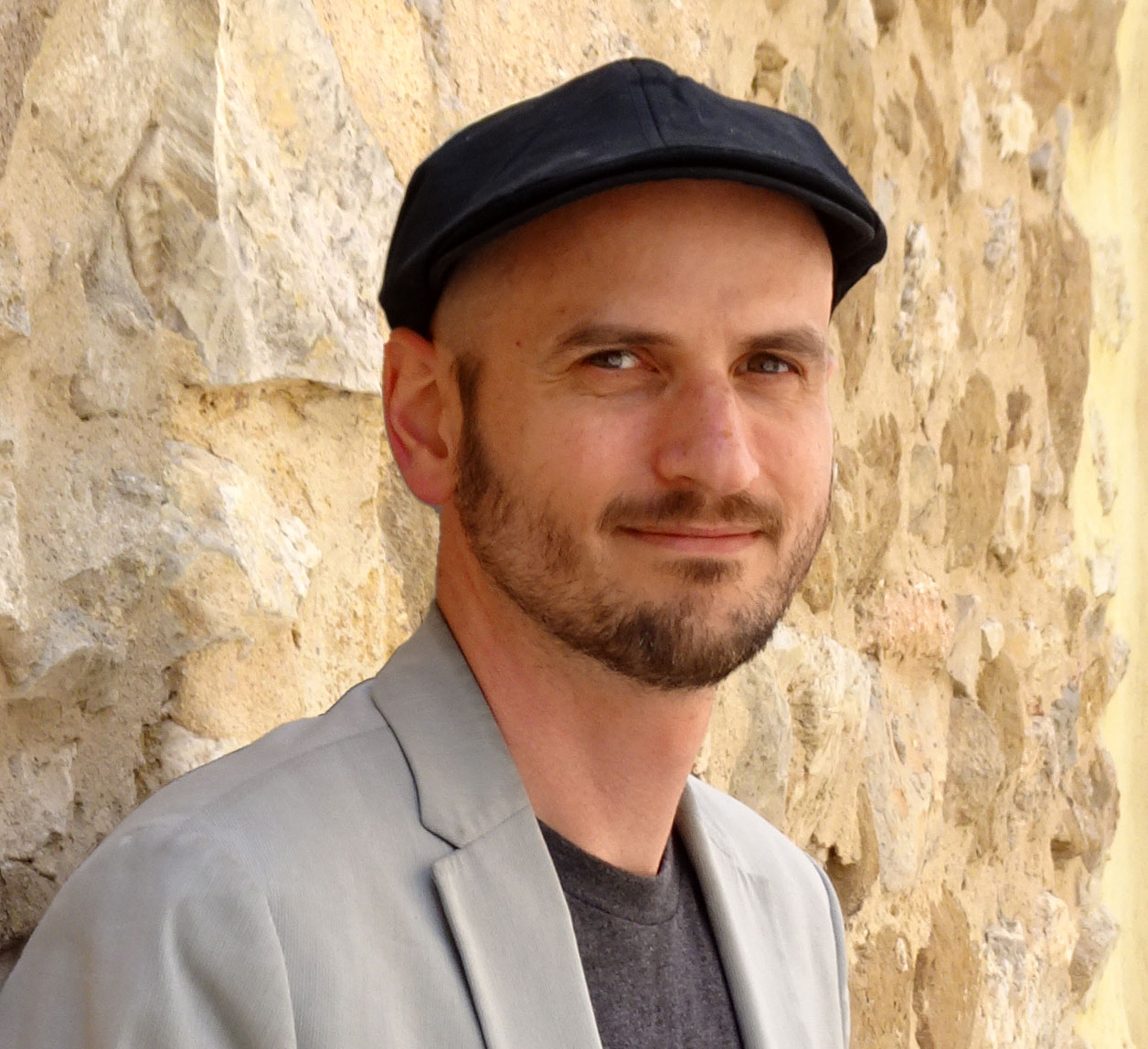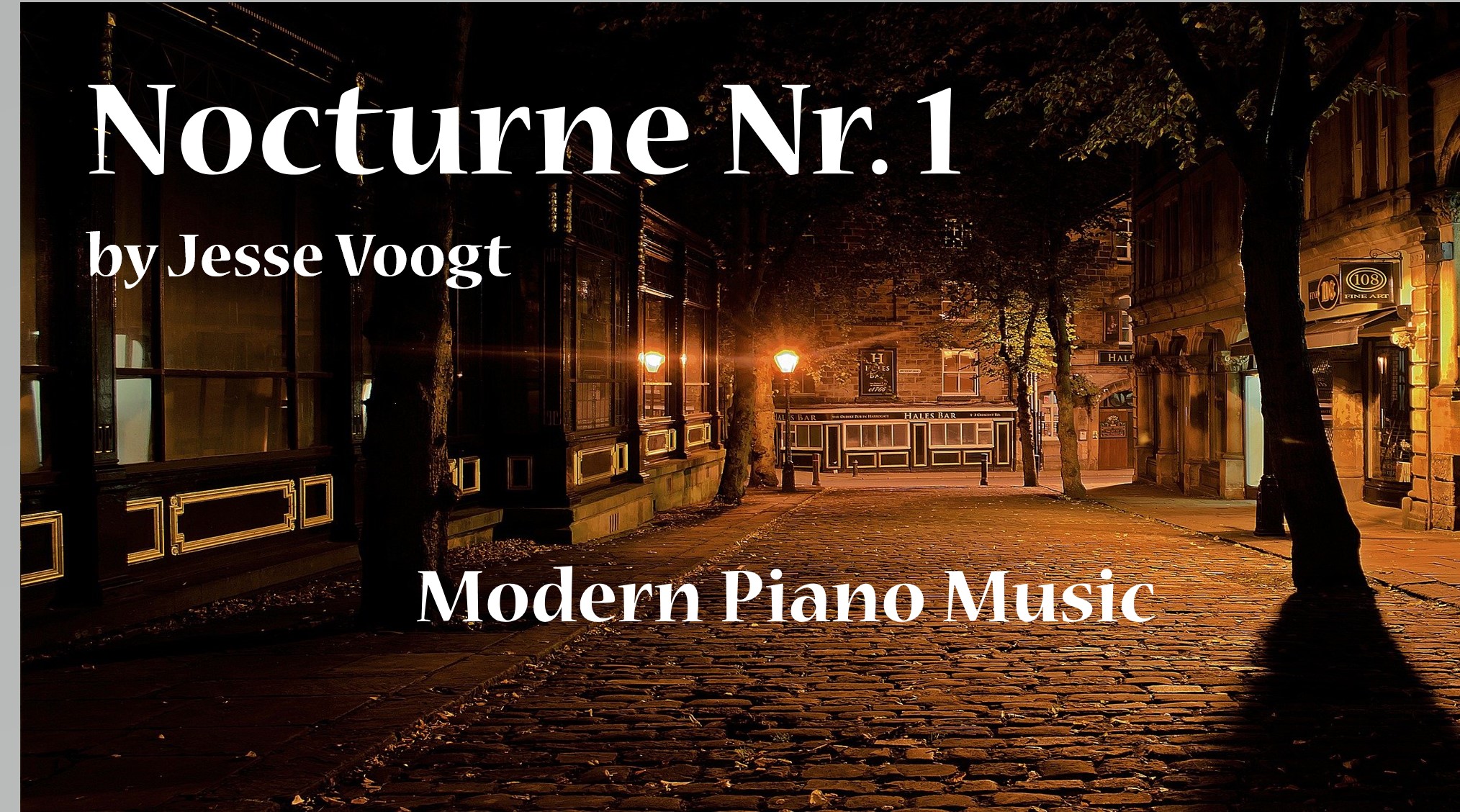Great to have you back!

1
Videos
About
Jesse Voogt is an award-winning composer who spent his early childhood in Aruba and the Netherlands, but has since lived in the USA. He studied music composition for a year at the ArtEZ conservatoire in the charming city of Zwolle, the Netherlands. Primarily a violinist, much of his work involves stringed instruments, starting with the Sinfonia he wrote for his high school string orchestra. His music ranges from works for solo piano, solo violin, and solo guitar to works for a full orchestra, and while it is often neo-Romantic, sometimes neo-Baroque, and occasionally pop-classical, his music is always driven by a strong sense of melody. Besides music, he also studied computer science, has a degree in architecture, and has built a career as a web developer - but while he has many interests, creating music is his constant and true passion.
Sheets
Interview
What does music mean to you personally?
Although it’s hard to explain how “organized sound” (to put it coldly) could seemingly mean so much and consume so much energy, for as long as I can remember music has always been a big part of my life. From the sounds of the 60’s and 70’s playing on the record player growing up (I still kind of want to be a Beatle) to my playing in orchestras and chamber ensembles in high school and college, music has taken a central role in my mind. As I spend much of my day working as a web developer writing JavaScript and PHP (which can also be creative, but often tends to be routine or tedious), composition is a huge creative outlet for me.
Do you agree that music is all about fantasy?
I think that the best music is often “discovered” by employing the imagination. However all too often if I am actively trying to create something new, the muse seems distant as all too quickly I am shackled by the knowledge of what I’m trying to accomplish. But then in an instant, often without thinking about what I’m doing, some small idea comes to the surface, and I am hooked. The role of craft and experience is nevertheless not to be discounted, since it helps to be prepared when an interesting musical idea comes to you, but for the initial “spark” (as well as subsequent, often much needed ones), discovery by letting the imagination run free I believe is key.
If you were not a professional musician, what would you have been?
That’s easy, since I’m not a professional musician, but instead decided to be a web developer for a living. However, it is music that’s my true passion, and I focus all my extra time on this endeavor.
The classical music audience is getting old, are you worried about the future?
Music will evolve with the times, as it always has. I think in many ways the spirit of “classical” music is alive and well in cinema, certainly. In sheer numbers, classical music is probably enjoyed by more people today than it was in Beethoven’s day, both because of easy ability to listen to just about anything by way of the internet and because there are simply far more people today. Now this of course alone isn’t enough for professional composers and performers of classical music to sustain themselves, since such easy access to so much excellent music practically for free makes it hard for new music to even be heard, much less be a reliable income source. I worry more about the future of the planet than of music, whether it is termed classical or otherwise.
What do you envision the role of music to be in the 21st century? Do you see that there is a transformation of this role?
I think music has and will continue to have the same general roles in people’s lives. Music can provide entertainment, inspiration, relaxation, escape, healing, energy, or even be used to deliver important messages, whether they be political or philosophical, or to tell all kinds of stories. Music is also quite social in that it often brings people together. I don’t know whether we will see a change in these roles - perhaps only a change in how music makes its way into people’s lives. One thing that is certainly impacting music already in this fast paced information age, however, is that attention spans have gotten considerably shorter, and since the world is filled with a lot more noises (say from cars, etc), quieter music or music that takes its time to develop or build is harder for many to learn to appreciate since it cannot really be heard in this context.
Do you think that the musician today needs to be more creative? What is the role of creativity in the musical process for you?
By most measures, creativity has always been important for “success” in the realm of classical music - what we think of as “traditional” classical music was once totally innovative, after all. For that matter, to stand out in any crowded field it is essential to bring something different. However, I personally think it’s also important for composers to realize that while creativity is important in order to stand out, this does not mean we need reject the musical norms of the past outright lest we end up creating something that no one can relate to. Most music that gains any kind of an audience, no matter how “different” or “new” it sounds, shares something with music that preceded it. Music is generally something that you learn to appreciate over time within the context of the music that you hear. I don’t know that a musician today needs to be any more creative than musicians of the past, but I think it can be said that in the 20th century a lot of the so-called “rules” were broken, freeing future composers to be as creative as they wish, and because of this freedom it can actually be daunting for a composer trying to do something “new” today. Personally, I try to be creative in looking to the past for inspiration - and while sometimes this can lead to “mimicking” long outmoded styles, this for me is just part of the process of learning what came before so that I can create something in my own voice by combining some of these influences in a new way.
Do you think we as musicians can do something to attract the younger generation to music concerts? How would you do this?
The younger generation has a lot of music to choose from, and unfortunately classical music isn’t as easy to hear in an increasingly loud environment. I don’t have any easy answers here, except that some of the formality and perceived “snobbishness” of classical music is often perceived negatively as some sort of “elitist music”. I think it is therefore wise to try to counter this by encouraging informality. Does that mean we encourage clapping between movements or even during the performance as in jazz or so many other music styles? I don’t know, I think that depends on the mood of the music itself, but perhaps for much classical music just providing a more intimate setting rather than the huge concert hall, where people can interact directly with performers/composers/conductors in some manner, would be a good starting point. The other aspect that might be worth pursuing is trying to ensure the music itself is as diverse as your community or the world.
Tell us about your creative process. What is your favorite piece (written by you) and how did you start working on it?
As mentioned in my answer for another question, I often attempt to be creative only to find myself unable to come up with anything I like. It’s often when I’m not trying anymore that some musical idea will suggest itself to me (I do think that those times of “trying” to be creative are essential nevertheless - I think they help me be prepared when an idea that I think is worth pursuing comes my way). Once I do have an idea, to develop it further I find it very important, being rather melody-focused, to sing the melody to see where it “wants” to go. Working out ideas on the piano or violin is also very useful, of course, but I find the voice is the most direct way to create or develop a melody. This also helps me to create music that doesn’t stay too strictly in just one meter. Regarding a favorite piece that I wrote, this is a tough one because I enjoy creating music that is varied in its mood and approach. What comes to mind at the moment is Marche Funèbre et Nouvel Amour because I felt like I was successful in my attempt to “tell a story” through the music (even if the story itself is up to the listener’s imagination), and at the same time I felt like I was able to free myself a bit from some of my neo-romantic tendencies regarding harmony and meter, all while exploring what, for me, is a new frontier of orchestration. It ended up sounding a lot more cinematic than I would have expected from myself, which may have been the result of watching the Nightmare Before Christmas around that time - Danny Elfman’s score works so well with the dark imagery of Tim Burton’s film. Perhaps, when the orchestras of the world play again, I can find an orchestra to play this or other orchestral works.
Can you give some advice for young people who want to discover classical music for themselves?
Apart from going to live concerts when you can, I would recommend getting a good pair of headphones. Listen to a variety of classical music to get a sense of the variety that is there. Classical music is often viewed as just “relaxing” music - perhaps this is because a lot of other popular music is so much louder (especially when mixed/mastered for listening at home). But classical music can be quite exciting - just listen to the driving rhythms in Stravinsky’s Rite of Spring or the tempestuous storms in Vivaldi’s Summer from the Four Seasons or in Beethoven’s otherwise serene “Pastoral” symphony No. 6. Classical music is often used in films specifically because it can evoke or even create so many different moods - start with the music you find most appealing and just take the time to do some active listening, trying to follow the various melodic or motivic lines. If you think you know a piece already, listen to it again but try to focus on another aspect of the music that isn’t in the forefront.
Do you think about the audience when composing?
I find it hard to predict what any given audience might like, so instead I like to imagine myself as the audience; I simply attempt to write something that I think I might enjoy listening to upon a first listening. This can be tough too, since by the time I am done writing a piece of music I will have heard my music ringing in my head many times over!
What projects are coming up? Do you experiment in your projects?
Currently, due to some promising new musical connections, I have been working on some pieces for guitar and voice as well as for guitar and string quartet and/or orchestra. I recently also composed a piece for string orchestra that was influenced by Barber’s famous “Adagio for Strings”, which I hope to create a quality mockup of in the next few weeks. While I do have certain instruments and mediums that I gravitate towards, every project is essentially an experiment for me, and I’m not always in complete control of what music I write next.
Copyrights © 2019 Moving Classics TV All Rights Reserved.
